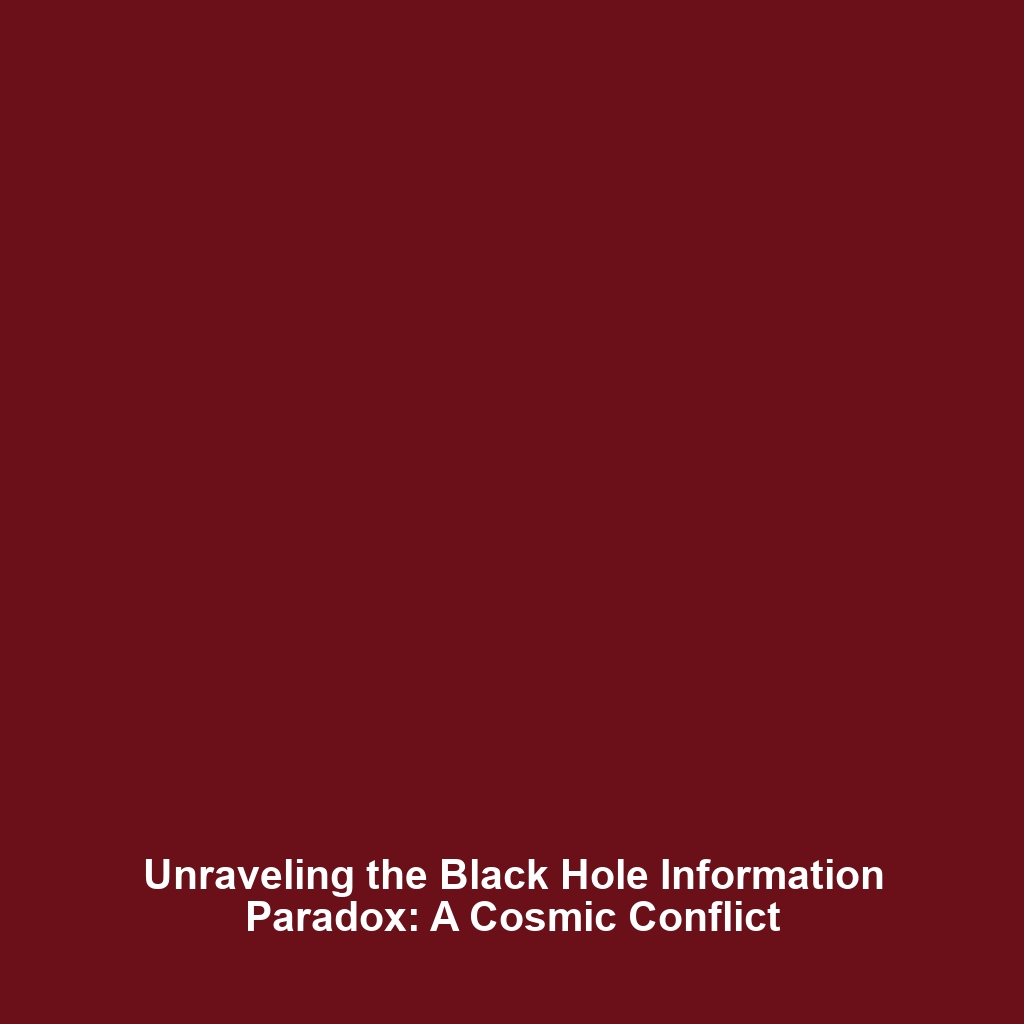String Theory and Black Holes: How String Theory Seeks to Reconcile Black Holes and Quantum Mechanics
Introduction
String theory, a groundbreaking theoretical framework in physics, aims to unify the fundamental forces of nature by conceptualizing particles as tiny vibrating strings. Within the realm of astrophysics, one of the most profound implications of string theory is its potential to reconcile black holes with quantum mechanics. Understanding how string theory seeks to integrate these two fields is crucial in the pursuit of a comprehensive theory of quantum gravity—a quest that could redefine our understanding of black holes and their enigmatic nature.
Key Concepts
1. The Essence of String Theory
String theory posits that the elementary particles we observe are not point-like objects but rather one-dimensional strings. The vibrations of these strings determine the properties of particles, including mass and charge. This innovative approach opens pathways to explore connections between various forces in nature, including gravity, electromagnetism, and nuclear interactions.
2. Quantum Mechanics and Black Holes
Black holes, regions of spacetime exhibiting gravitational forces so strong that nothing—not even light—can escape, present significant challenges when combined with the principles of quantum mechanics. Traditional theories break down at the event horizon, where quantum effects and gravitational forces clash, leading to paradoxes such as the black hole information paradox.
3. String Theory’s Role in Reconciling Concepts
String theory provides a framework where these paradoxes may find resolution. It suggests mechanisms like holography, which postulates that all the information contained within a volume of space can be represented as a theory on its boundary. This idea has profound implications for how information is preserved in black holes, challenging the notion that information is lost.
Applications and Real-World Uses
The exploration of how string theory is applied to enhance our understanding of black holes has several real-world implications:
- Collider Physics: Insights from string theory inform research in particle colliders, helping to probe conditions similar to those present shortly after the Big Bang.
- Cosmology: Theoretical predictions stemming from string theory may explain cosmic phenomena, including dark matter and dark energy, which relate to black hole properties.
- Quantum Computing: Concepts in string theory enhance methods in quantum computing, drawing parallels between complex systems and black hole thermodynamics.
Current Challenges
While promising, research into string theory and black holes faces several challenges:
- Difficulty in experimentally verifying string theory due to the high energies required to test its predictions.
- Complex mathematical formulations that are not yet fully understood or proven.
- Ongoing debates regarding the fundamental nature of black holes as understood through the lens of string theory.
Future Research and Innovations
Future research in string theory and black holes could yield significant breakthroughs. Key areas of focus include:
- Mathematical Advances: Progress in mathematical techniques may reveal new properties of black holes described by string theory.
- Quantum Gravity Technologies: Innovations deriving from these theories might eventually lead to technologies based on principles of quantum gravity, impacting fields such as energy generation and information storage.
- Further Astrophysical Observations: Enhanced observational technology may allow us to explore the implications of string theory in the cosmic landscape, especially in regions close to black holes.
Conclusion
In summary, string theory endeavors to bridge the gap between black holes and quantum mechanics, offering potential solutions to long-standing problems in physics. As researchers delve deeper into this fascinating intersection, the significance of understanding how string theory seeks to reconcile black holes with quantum principles continues to grow. For further exploration, consider reading more on Quantum Gravity and its relationship with black holes.



